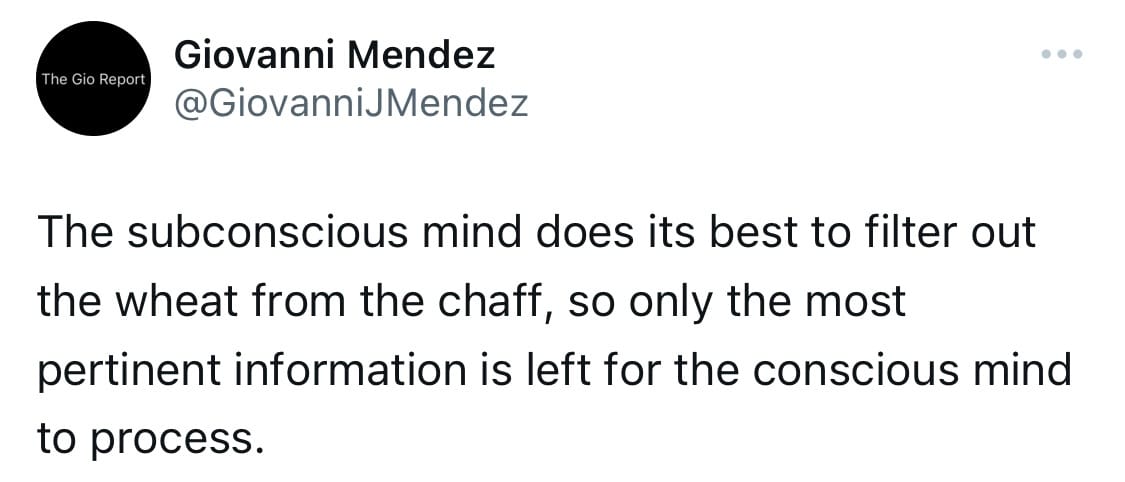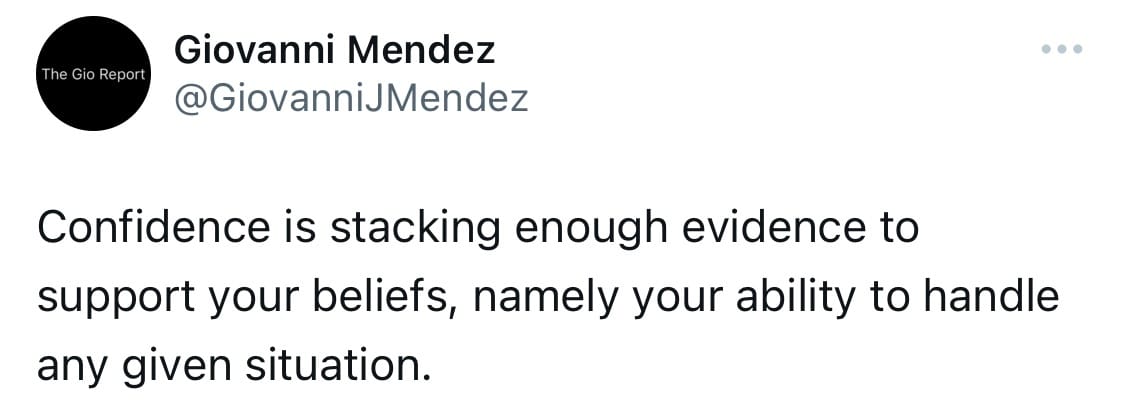- Freedom Letter
- Posts
- How to Harness the Power of Delusion (and Avoid the Traps!)
How to Harness the Power of Delusion (and Avoid the Traps!)
Many people want to achieve great things, even if the odds of success are low.
And even if you show great potential, the world will scream:
“Get your head out of the clouds and be practical!”

But what if you learned to use delusion to your benefit?
First, we must get rid of the idea that being delusional is all bad.
If delusion was only harmful, evolution would have dispensed with it a long time ago (or humans would have gone extinct).
So what is this bizarre mechanism of the brain?
Let’s start with the dictionary definition:
Delusion: a false belief that persists despite evidence proving it false (and occurs especially in some mentally disturbed states).
Now remember, especially does not mean only (but it’s true that delusion can manifest in the extremes).
However, to varying degrees, we all experience delusion.
A well known example is the function of hope.
We often hope for things that aren’t rooted in logic.
• We hope one day things will get better (even if we aren’t actively improving our lives)
• We hope to become wealthy (even if we don’t take the time to understand money)
• We hope the world will cut us some slack (even if we attack those that make mistakes)
Although hope can be rooted in delusion, it can also make us feel better (which helps to regulate a distressed brain).
It makes us believe one day things will improve.
We hope future us will accomplish the things present us can only dream of.
And all present us needs to do is wait.

The brain understands it must work to create a barrier against the world around us.
Our subconscious mind can only let so much information into our awareness before we become overloaded.
For instance, if we were constantly consumed with everything that could harm us, we’d become paralyzed with fear (which is an unfortunate reality for many).
Imagine early humans trying to meet their basic needs for survival if their heads were endlessly on a swivel.
The mind struggles to process the entirety of our existence all at once.
Especially the fact that we’re mortal beings on a floating rock (surrounded by endless space, a lack of answers, and uncertainty about almost everything we’re doing).
So the mind determines how much it can handle (and filters out the excess).
Similar to how you’re reading this sentence and have limited awareness of the sentences before and after.
It’s not that your brain cannot see it, but it knows you can’t focus on everything at once.

This is important because our minds are designed for survival.
Our ancestors needed to rely on their senses (much more than we do now) to detect any potential threats.
They were fully in tune with their nature (and they had to be).
It’s as if the whole world was conspiring to end their existence.
And for those not equipped to handle certain threats, this meant living in a constant state of fear and anxiety.
Despite lacking the ability to defend themselves, they were able to alert those in the community who could (which is why I believe people instinctively scream when they’re frightened).
And those who were trained to defend the group managed to suppress their fears by trusting in their abilities (aka confidence).

Now fast forward to current times and many of us are safer than our ancestors ever were.
In your daily life, it may not be a big cat lurking in the shadows (waiting for the right moment to ruin your day).
• It could be your boss.
• It could be your car breaking down.
• It could be the crazy guy standing outside 7-11.
Some of what we perceive as threats are very real, but many times our emotional reactions don’t match the threat level.
Those negative emotions can be quite overwhelming, and one method we have to reduce them is convincing ourselves we’re safe.
We repeat to ourselves, “I’m okay, I’m okay,” and our brains begin searching for evidence to support that claim (even if it’s not true).
We begin to paint a picture of the world we can bear.
• I don’t have an emergency fund, but that’s what credit cards are for.
• Everybody’s drowning in debt anyways, it’s not like it’s just me.
• How am I supposed to get ahead when everything is so expensive.
We delude ourselves of potential consequences we face in order to feel at ease (many times placing the blame on external factors).
But that blissful delusion is constantly challenged when issues become too big to ignore.
And as those unwanted emotions rush back in, you’ll need to decide how to manage them.
You can choose to face the issues head on (and gain confidence in your ability to manage them in the future).
Or you can continue to support your delusion by convincing yourself that everything is okay (even though it isn’t) allowing the cycle to continue.
But blind delusion can only take you so far (and eventually can lead to harmful outcomes).
On the other hand, many high achievers willingly engage in self-delusion (but to their own benefit).
They say to themselves:
• I’m unstoppable!
• I'm the greatest ever!
• I can do anything I set my mind to!
The individual is attempting to eradicate any self-doubt (even if only for a moment) so they can reap the rewards of playing within that reality.
It's difficult to beat someone who believes they're unstoppable (and has the talent to back it up).
The key for this individual is to manage the “come down” once the delusion wears off.

In a world of billions, some individuals believe their dreams can become reality.
They have big aspirations, but may currently lack the skills to achieve them.
And people around them will make that apparent (which can be crippling for many).
But others are able to form a force field with their minds to block out the negative voices.
They’re able to use the power of delusion to their benefit.

The brain focuses on what it believes is most important (or what triggers “feel good” chemicals).
The trap of hyper-focusing on what makes us feel good is dangerous.
It can become a cycle of avoiding what is difficult.
A better form of controlled delusion is to keep out anything and everything that seeks to keep you away from your goals.
You become hyper-focused on detecting what’s important and acting accordingly.
But be forewarned, this is an advanced level of mental mastery (with potentially dangerous repercussions).
You must be confident in your ability to control your mind before attempting to implement the power of controlled delusion.
Michael Jordan believed in his soul he was the best basketball player to ever live.
At one point, this was a form of self-delusion.
Especially when he was just beginning his career and didn’t have the track record to support his belief.
But let’s focus on his actions.
He didn’t believe that he was the best therefore he didn’t need to put in any effort.
He believed he had the potential to be the best because of his natural abilities, his acquired skills, and his ferocious determination.

This is what I call 20/20 delusion (blind delusion’s kryptonite).
Despite how much evidence of greatness Jordan acquired, he never stopped outworking (and outsmarting) his competition.
This is an individual who became absolutely unstoppable (both in mind and body).
He constructed a filter with his mind that destroyed any doubt (both internal and external) attempting to knock him off his game.
Anything that went against his beliefs perished at the hands of his mental force field.
But he never deluded himself to the point of relying on his natural talents alone.
As gifted as he was, he understood there was a price to pay to be the greatest.
He knew greatness required deploying unreasonable amounts of effort (over and over again).

Few people understand reality to this degree (allowing them to tap into powerful mental defenses without falling victim).
Some people get a little external evidence that they’re special and run with it.
They begin to believe they’re unstoppable.
Eventually, they stop putting in the work that got them their success in the first place.
• They feel they were destined for greatness.
• They become reliant on their past accomplishments.
• They believe everything will magically happen for them.
This is a victim of their own delusion.
Don’t allow this to happen to you.
Even M.J. had the humility to understand that he could not be great with natural talent alone.
• We must remain humble despite our successes.
• We must continually improve our strengths and weaknesses.
• We must avoid falling into the mental traps of blind delusion.

If you understand the benefits and pitfalls of delusion, you can learn to master it.
If you understand reality, how the world operates, and how the mind behaves, you have a far better chance of avoiding mental traps (both internal and external).
There are individuals and organizations spending billions of dollars a year to influence your behavior.
It is far more difficult to control an opponent who is confident in their abilities.
The most naturally gifted person (who isn't mentally strong) can be knocked off center, causing them to fall short of their potential.
If you understand these dynamics, you can size up your opponents and unleash the optimal strategies to defeat them.
Or risk falling into the mental traps set by others.
If you haven’t checked out my report on honesty, it’s a necessary prerequisite to mastering delusion.
It may seem confusing on how honesty plays into all of this (seeing as delusion isn’t usually associated with truth).
But understand life is full of contradictions (and few things are absolute).

Practicing humility (and self-honesty) will allow you to break out of any mental traps set by yourself or others.
It will enable you to see what others cannot.
You’ll learn to jump into and out of your delusions as needed (it’s like a real life superpower).
💡Thought Exercise:
How can you apply 20/20 delusion to your life in order to block out internal and external doubt?